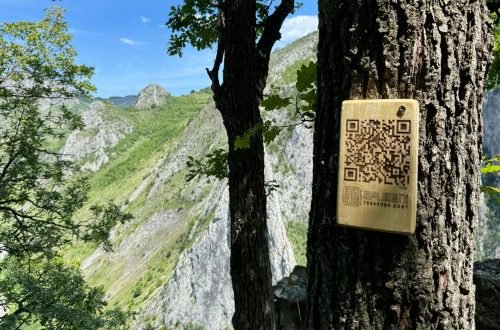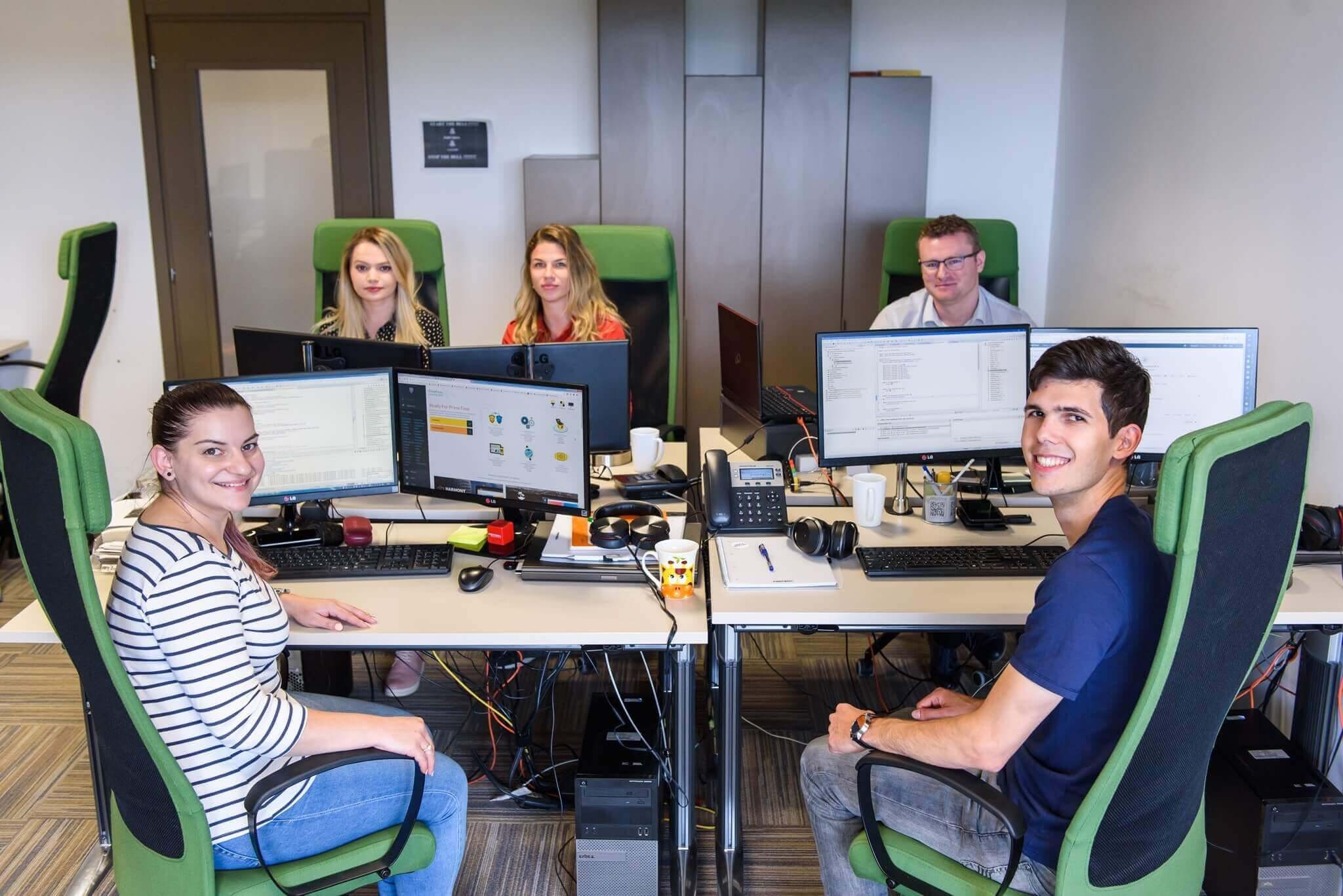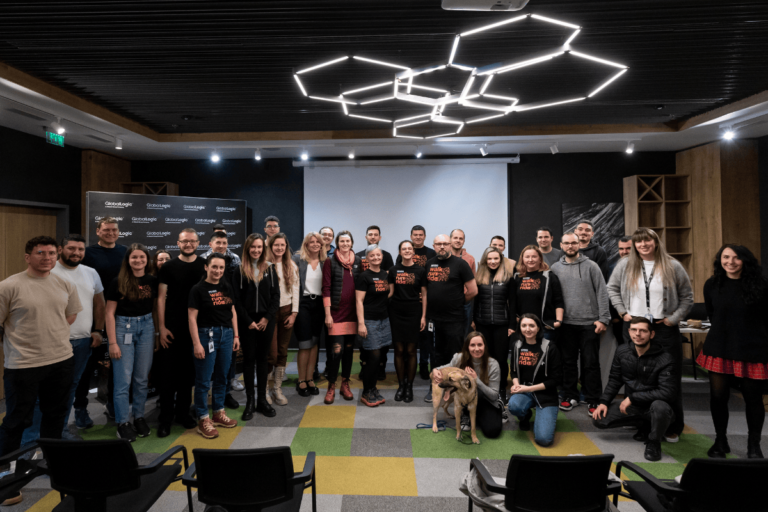- Services
Technology Capabilities
Technology Capabilities- Product Strategy & Experience DesignDefine software-driven value chains, create purposeful interactions, and develop new segments and offerings
- Digital Business TransformationAdvance your digital transformation journey.
- Intelligence EngineeringCreate high-value products faster with AI-powered and human-driven
- Software Product EngineeringCreate high-value products faster with AI-powered and human-driven engineering.
- Technology ModernizationTackle technology modernization with approaches that reduce risk and maximize impact.
- Embedded Engineering & IT/OT TransformationDevelop embedded software and hardware. Build IoT and IT/OT solutions.
- Industries
- GlobalLogic VelocityAI
- Insights
White PapersSeptember 17, 2024Diana SocaciuElevating Romanian Tourism with GlobalLogic: Apuseni App
The innovative banking apps, such as the one we'll explore in this case study, succeed ...
 Case StudiesGlobalLogic
Case StudiesGlobalLogicFrom Legacy to Leading-edge: A Global Software Leader’s ...
Discover how GlobalLogic’s AI-powered solutions helped a global software leader migrate...

- About
- Meet our people
- Vlad, Senior Java Developer, on Crafting Business Intelligence Software for the Automotive Industry
Vlad, Senior Java Developer, on Crafting Business Intelligence Software for the Automotive Industry
Vlad Iliescu joined our company as an intern over nine years ago. What started as a compulsory internship turned into a full-time job and a recent promotion.
Get a glimpse behind the code. Read about his involvement in a complex project for the automotive industry and the steep learning curve that it gave him, and about Vlad as a person.
Tell us a bit about yourself. Your studies, hobbies, passions.
I studied Computer Science at the Technical University of Cluj-Napoca and have a master’s degree in Automation and Applied Informatics. I am passionate about coding and technology in general. In my free time, I like to play the guitar, read books, or if the weather allows it, I enjoy going on hiking on mountain trails. Last year, together with my friends, I climbed the second highest peak in Romania, Negoiu, after hiking for roughly 8 hours. Exploring Greece’s mountain landscape is a must on my bucket list.
I joined the Fortech team as an intern about nine years ago at the beginning of my software developer career. Currently, I’m working as a Senior Java Developer, and I was recently promoted to Engineering Manager role. As Fortech became part of GlobalLogic, I am eager to discover new perspectives for my growth.
What are your responsibilities within the team?
As an Engineering Manager, I work on many different things, which is what I enjoy the most. There are various projects and initiatives I can get involved in, which gives me access to several areas I can develop.
First and foremost, I implement the software code for the project I am working on. I also design some parts of the code and do code reviews for my colleagues. Since being promoted to Engineering Manager, I have worked closely with my teammates to set up their professional development plans and help them reach their objectives. I also manage my team’s workload, interact with stakeholders from the client’s side to clarify the project’s technical aspects, and offer my team guidance where needed.
In addition, I am also working on a few internal tools, such as a project information management tool and a secure authentication tool. Both help our teams in their day-to-day work by offering quick access to information or ensuring our data and accounts are secured. I thoroughly enjoyed being involved in the full planning and development cycle for these tools. This meant defining these projects’ purpose, adding value, and developing useful functionalities. We have different internal tools that share data and communicate with each other; so, defining a good approach to connecting them is essential.
A few years ago, I got the opportunity to mentor a team of high school students, part of the “Discover Your Call in IT” program. A fun activity that turned into a well-deserved award for our Volteem app, which we designed to help NGO’s recruit volunteers.
Tell us about one software project that you really liked working on.
One project I really enjoyed was an ERP software project for the automotive industry, targeted at the B2B market. It was a robust platform that generated financial forecasts and reports on car leasing or buy-back prices, offering in-depth business intelligence for our clients. The system connected to various data sources using granular information (from car segment to estimated mileage) to generate valuable market insights and financial predictions.
How was the project team?
The team was one of the best things about this project. We were about ten in total, working from Cluj and Germany. Collaboration was essential, and at this size, it worked great. The client visited regularly, and I remember one of my first trips that turned into an exciting visit to the Ritter Sport chocolate factory. Here’s proof of our happy faces and all the chocolate we bought.

Vlad and his colleagues in their office in Cluj-Napoca
What was the project’s tech stack like? How about the processes?
We used the following technologies and frameworks: Java 8, Websphere application server, JSF – with libraries like Primefaces, JavaScript, JPA, DB2 database, Phyton scripts, Git, SVN, SOAP.
We worked based on the Waterfall methodology, receiving work packages that we need to implement and deliver in a fixed timeframe. If any critical fixes or changes were to be made, we would create new, urgent deployments of the application. The client had his own QA team that ensured the quality of the delivered packages and provided fast feedback if something needed to be changed.
What was your favorite part of the software project?
I enjoyed learning new things and overcoming the challenges that come with the new features we plan to implement.
When I joined the project, I worked on a Java Enterprise Edition web application. Then I got the chance to implement an interface for the project using Angular. Switching technologies allowed me to explore and find out what suits me best.
We made some significant changes to the project: we changed the whole UI, migrated from Java 7 to Java 8, and updated frameworks and libraries to make the user experience more interactive.
Our roadmap for this year includes migrating the application to the Cloud.
What were the most challenging aspects of this software project?
As a Senior Java Developer, understanding the business logic, figuring out how the app should flow for the user, and translating all that into the code were one of my biggest challenges. It was a complex and big project connected to various data sources, and it has been used for over 10 years.
Another hurdle was understanding and getting used to the terminology specific to the automotive industry.
Recently, Fortech became part of GlobalLogic. What’s next in your career journey, and what do you expect?
When the integration process within GlobalLogic is complete, I expect to work and interact with new colleagues and teams. This is always a good opportunity for knowledge sharing and improving my communication skills as well.
Regarding my career journey, I will continue learning and adapting to emerging trends in the tech industry, and ultimately, I aspire to make meaningful contributions to innovative projects.
 How can I help you?
How can I help you?
Hi there — how can I assist you today?
Explore our services, industries, career opportunities, and more.
Powered by Gemini. GenAI responses may be inaccurate—please verify. By using this chat, you agree to GlobalLogic's Terms of Service and Privacy Policy.


